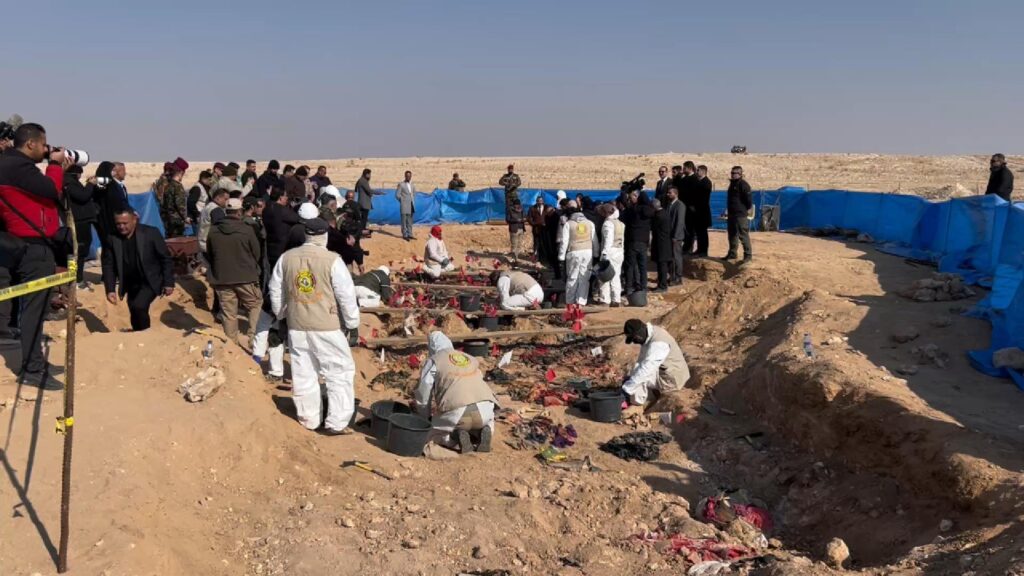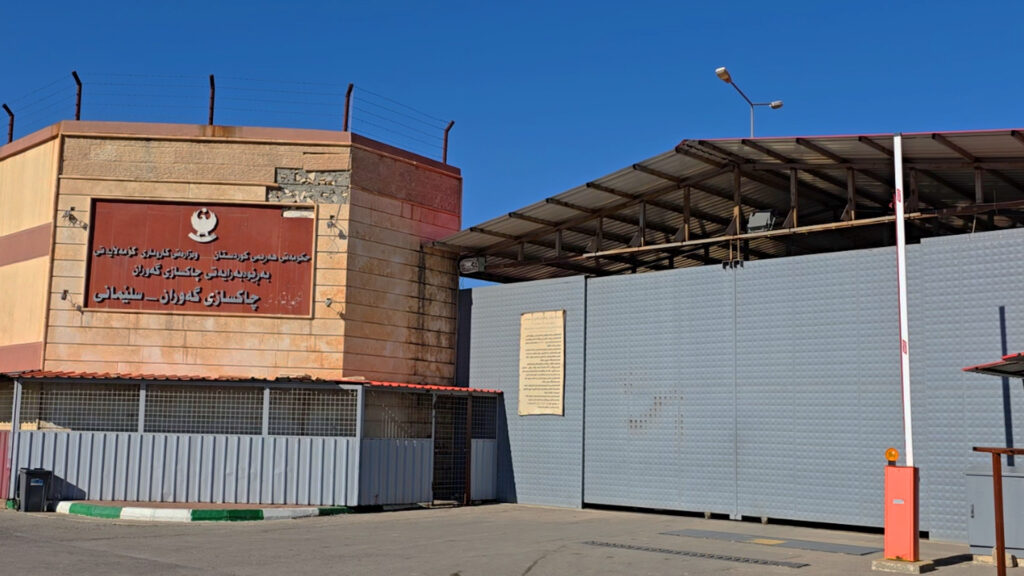Key foreign policy takeaways from the Harris-Trump presidential debate

The highly anticipated US presidential debate between Kamala Harris and Donald Trump took place on Tuesday in Philadelphia, Pennsylvania, with the candidates trading barbs over Israel’s war on Gaza and defending their pro-Israel credentials.
This was the second presidential debate this year for Trump, who also went up against Joe Biden in June. Biden’s stuttering performance triggered an upheaval within the Democratic Party that ultimately saw him step down and Harris head the ticket.
Emerging well-rehearsed and presidential for her very first face-to-face meeting with Trump, by most accounts, Harris won the debate on style and substance.
But US presidential debates have not been substantive policy discussions for years - at the very least since the advent of clips going viral online. In that vein, the former president commanded the headlines across social media platforms with his quips about undocumented immigrants eating pets, surgeries on transgender illegal aliens in prison, abortions taking place at nine months, and why he both loves and hates solar panels.
Despite what many see as a winning performance from Harris, the morning after the debate, it is Trump dominating the headlines.
Harris and Trump - give or take three percentage points - are neck and neck in national polling.
Middle East Eye takes a look at some of the foreign policy takeaways from the debate.
Harris renews pledge to continue arming Israel
When asked about Israel’s war on Gaza, which was brought up one hour into the debate, both candidates reiterated their well-worn talking points.
Harris said she backs a ceasefire deal in Gaza that would see the release of the remaining one hundred or so Israeli captives, but renewed her pledge to continue to arm Israel. She also voiced support for the two-state solution - a 30-year-old concept that does not currently have a viable reality on the ground, according to current and former Palestinian negotiators, as well as some Israeli ones.
'So absolutely I said then, I say now, Israel has a right to defend itself'
- US Vice President Kamala Harris
“On October 7, Hamas, a terrorist organization, slaughtered 1200 Israelis, many of them young people simply attending the concert. Women were horribly raped,” she said, despite a United Nations investigation showing no access to first-hand accounts or evidence of rape.
“So absolutely I said then, I say now, Israel has a right to defend itself,” she added.
“And how it does so matters because it is also true far too many innocent Palestinians have been killed. Children, mothers,” Harris said.
The war, which is now in its eleventh month and has claimed the lives of at least 41,000 Palestinians, triggered protests across the US and stoked a sharp generational divide, with young Americans sympathising with Palestinians in large numbers. For the first six months, the Biden-Harris administration refused to call for a ceasefire.
Harris added that in that solution “there must be security for the Israeli people and Israel, and an equal measure for the Palestinians. But I will assure you always, I will always give Israel the ability to defend itself. In particular, as it relates to Iran, and any threat that Iran and its proxies pose to Israel, but we must have a two-state solution where we can rebuild Gaza, where the Palestinians have security, self-determination and the dignity they so rightly deserve.”
The language used by Harris echoed previous statements she and other Democratic officials have made, including at August’s Democratic National Convention.
Trump says Harris 'hates Israel'
For his part, Trump reiterated his position that the war in the Middle East would not have broken out if he were in office.
“When she mentions Israel, all of a sudden - she hates Israel. She wouldn’t even meet with Netanyahu when he went to Congress to make a very important speech. She refused to be there because she was at a sorority party of hers. She wanted to go to the sorority party. She hates Israel,” he said.
Read More »“If she’s president, I believe that Israel will not exist within two years from now. I’ve been pretty good at predictions that I hope I’m wrong about that one. She hates Israel. At the same time she hates the Arab population, because the whole place is going to get blown up. Arabs, Jewish people, Israel will be gone. It would have never happened,” he said.
When prompted by one of the moderators to respond to whether she hates Israel, Harris said the remarks were “absolutely not true”.
“I have my entire career, and life, supported Israel and the Israeli people. He knows that. He’s trying to again divide and distract from the reality, which is very well known that Donald Trump is weak and wrong on national security and foreign policy,” she said.
Who's tougher on Iran?
Minutes later, Trump accused the Biden administration of empowering Iran, saying “it was broke under Donald Trump. Now Iran has $300bn because they took off all the sanctions that I had. Iran had no money for Hamas or Hezbollah or any of the 28 different spheres of terror, and they are spheres of terror, horrible terror. They had no money.”
Under the Trump administration, the US withdrew from what was then seen as a successfully negotiated Joint Comprehensive Plan Of Action (JCPOA), commonly known as the Iran nuclear deal, between the US, the UN Security Council, Germany, and Iran. The International Energy Atomic Agency (IAEA) said Tehran had been complying with the agreement when Washington decided unilaterally to pull out.
“They were broke. Now, they are a rich nation,” he continued, saying “they are spreading that money around. Look at what’s happening with the Houthis and Yemen. Look at what’s going on in the Middle East. This would have never happened. I’ll get it settled and fast.”
'I got involved with the Taliban'
“I agreed with President Biden’s decision to pull out of Afghanistan. Four presidents said they would, and Joe Biden did. And as a result, America’s taxpayers are not paying the $300m a day we were paying for that endless war,” Harris said.
Hundreds of Afghans - many who were working alongside US forces and private entities - were killed during the chaotic withdrawal, including 13 American soldiers. Some of the families of those soldiers said the blame lies squarely on the Biden administration, despite it being Trump who scheduled the withdrawal in the first place, before losing the White House in the election.
“And as of today, there is not one member of the United States military who is in active duty in a combat zone, in any war zone around the world, the first time this century,” Harris said.
Members of the US military are still actively engaged in Iraq, and they maintain a small contingent in northern Syria. The US Air Force also uses its bases across the Levant and the Gulf to launch air strikes on Yemen. The only difference is that there was never a war resolution enacted by Congress for these deployments.
Read More »Washington is still operating under the Authorization for Use of Military Force (AUMF) of September 2001, which began the so-called “war on terror” and has not since been repealed.
The vice president went after Trump for his February 2020 agreement with the Taliban to have thousands of its members released from Afghan government prisons. That was the same agreement in which Trump decided the US would exit its longest war.
“He calls himself a deal maker. Even his national security advisor said it was a weak, terrible deal, and here's how it went down. He bypassed the Afghan government. He negotiated directly with a terrorist organization called the Taliban. The negotiation involved the Taliban getting 5000 terrorists - Taliban terrorists - released,” Harris said.
“And get this? No, get this. And the president at the time invited the Taliban to Camp David, a place of storied significance for us as Americans.”
Trump fired back by insisting that negotiating with the stronger party yields results– and claimed he knows the head of the Taliban personally.
“I got involved with the Taliban because the Taliban was doing the killing. That's the fighting force within Afghanistan. [Biden-Harris] don't bother doing that because, you know, they deal with the wrong people all the time. But I got involved, and Abdul is the head of the Taliban,” Trump said.
“He is still the head of the Taliban. And I told Abdul, don't do it anymore. You do it anymore, you can have problems. And he said, Why do you send me a picture of my house? I said, you're going to have to figure that out, Abdul. And for 18 months, we had nobody killed.”
The head of the Taliban is Hibatullah Akhundzadah, whose title is the Supreme Leader of Afghanistan since 2021. The only known Abduls are the two current deputy prime ministers who were formerly part of the Taliban negotiating team in Qatar: Abdul Ghani Baradar, and Mawlawi Abdul Salam Hanafi.





